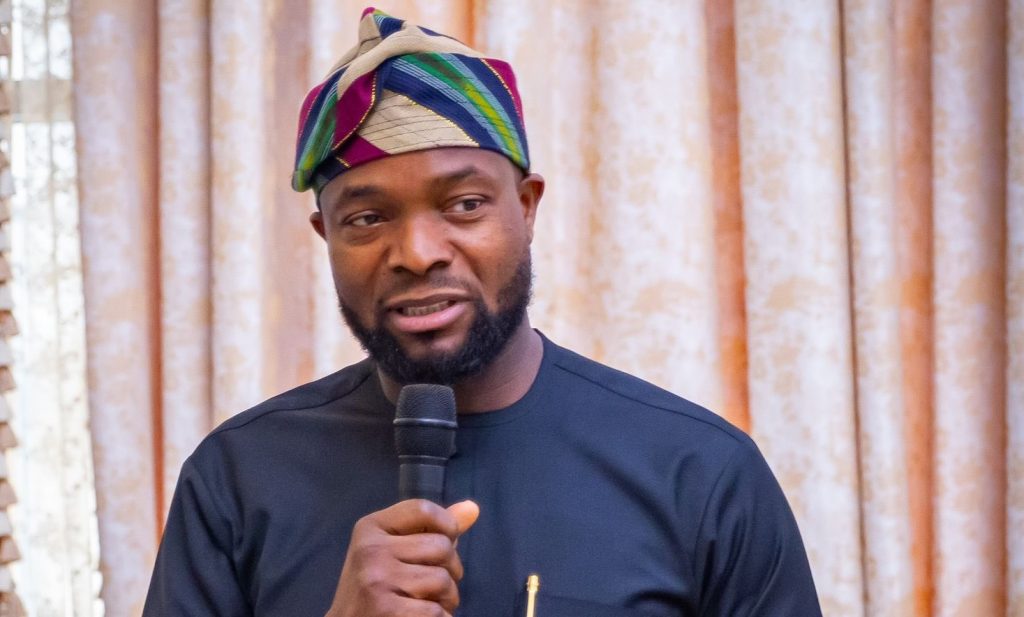Nigeria’s Minister of Communications, Innovation and Digital Economy, Dr. Bosun Tijani, has projected that the country’s digital economy will contribute 21% of the Gross Domestic Product (GDP) by 2030, up from its current 16–18 per cent.
Speaking at the National Digital Economy and e-Governance Bill Nationwide Engagement in Abuja on Thursday, Tijani, who was represented by the Permanent Secretary of the ministry, Rafiu Adeladan, said the target will be achievable if the National Digital Economy and e-Governance Bill is passed into law.
He revealed that the sector contributed N7 trillion to the economy in Q1 2025, accounting for 14.19 per cent of Nigeria’s N49.34 trillion GDP.
According to him, the Bill aims to establish a robust legal and regulatory framework for digital governance, thereby anchoring Nigeria’s ongoing transformation in the sector.
“The Bill will unlock the digital sector further, create employment, engage the youth, and catalyse growth beyond oil,” Tijani said.
The Minister emphasised that the digital economy has proven to be a significant driver of growth in recent years, describing it as the engine of Nigeria’s economy.
He noted that without the enabling Act, the sector contributes approximately N7 trillion, and with the Bill passed into law, the impact would be “nothing short of miraculous.”
“There will be so much employment. The youth will be fully engaged. Adults will grow their businesses. The economy will expand so much that Nigeria will not need to rely heavily on oil or other sources of revenue,” he added.
Tijani further explained that the Bill addresses critical gaps in the nation’s digital framework, particularly around electronic transactions, authentication, and recognition of electronic records.
He said this would put Nigeria in line with global best practices and boost confidence in e-commerce and e-governance platforms.
He also highlighted its forward-looking provisions, covering artificial intelligence, digital literacy, and trusted data systems, which will not only improve governance but also provide safeguards for citizens.
“Together, we can ensure this Bill provides the legal foundation required to drive digital identity, e-governance, and overall digital transformation for Nigeria,” he told stakeholders.
Additionally, the Director-General of the National Information Technology Development Agency (NITDA), Kashifu Abdullahi, noted that the Bill was shaped through engagements in all 36 states.
“It was not done in isolation. Academia, industry, government, innovators and even venture capitalists all contributed. This law will accelerate digitisation, deepen financial inclusion, and ensure every Nigerian is part of the digital economy,” he explained.
Abdullahi said digitisation of government services would ensure more Nigerians are included in the economy. He stressed that once services move online, citizens would naturally consume them, and this would further drive financial inclusion.
“When you consume services online, you pay for those services. To pay, you need to be financially included. That is how digitisation, financial inclusion and citizen participation are all connected,” he added.
He also pointed out that the Bill would help close Nigeria’s digital divide through ongoing investments in connectivity and digital literacy.
According to him, the government is expanding infrastructure to connect the unconnected and training citizens to build their digital fluency, so no Nigerian is left behind in the transition.
Earlier in his goodwill message, the Managing Director of Galaxy Backbone, Prof. Ibrahim Adeyanju, stressed that infrastructure will be key.
“You can’t talk of a digital economy without infrastructure. Data today is more important than oil. If we utilise this Bill properly, it should grow GDP, reduce the ‘japa’ syndrome and ensure our youths are gainfully employed,” he said.
Also speaking, the National Commissioner of the Nigerian Data Protection Commission, Dr. Vincent Olatunji, described the move as historic.
“Policies are statements of intent, but law is compelling. By taking this Bill across the federation, it is clear we all own it together,” he said.
Postmaster General of NIPOST, Tola Odeyemi, said the Bill would accelerate innovation and strengthen consumer trust, while pledging NIPOST’s support through postcode infrastructure, accountable service channels, and trusted logistics.
Other contributors included Secretary of the Universal Service Provision Fund (USPF), Yomi Arowosafe, who called for openness to strengthen the draft; and Engr. Abiodun Attah, representing NigComSat, called for inward-looking policies to grow Nigeria’s economy.
With the Bill already through its first reading at the National Assembly, stakeholders expressed optimism that the upcoming public hearing and eventual presidential assent would provide Nigeria with a modern, forward-looking law to anchor its digital transformation.

